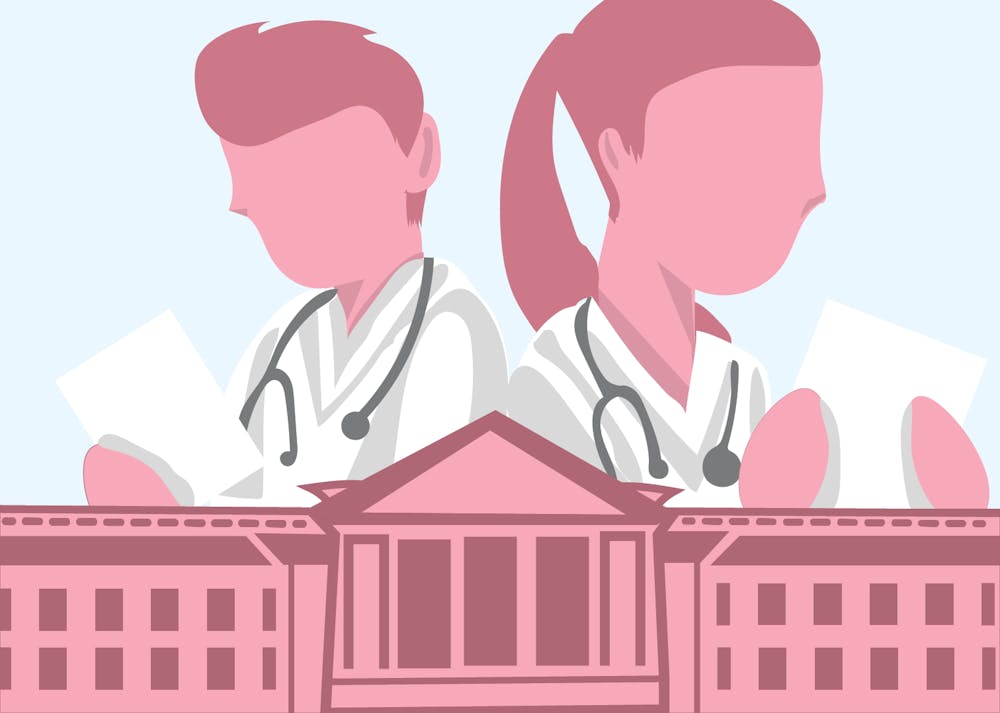The Arizona Supreme Court opened up the conversation last week to bring back a near total abortion ban from 1864 after the Arizona Court of Appeals blocked the ban almost a year prior.
The pre-statehood ban would mandate prison time for any medical professional who performs an abortion. The ban would be reinstated if a majority of the seven Arizona Supreme Court justices vote to reverse the current decision to allow abortion up to 15 weeks.
The court will not hear arguments for the next few weeks as briefs are submitted. The Alliance Defending Freedom, a conservative Christian legal group, will represent Arizonans looking to reinstate the ban. Weeks before the lawsuit was filed, Planned Parenthood Arizona and five other abortion-rights groups launched a ballot measure to preserve abortion care in the state.
The potential constitutional amendment, the Arizona Abortion Access Act, would protect abortion until fetal viability and extend abortion protections if the patient’s health was at risk.
READ MORE: This is what we know about the where abortion rights currently stand in Arizona
"Arizonans should protect the right to abortion not only because it’s the right thing to do, but because it paves the way for other swing states to also protect abortion," said Hailey Boiarsky, a sophomore studying gender, women and sexuality studies, along with political science, philosophy and justice studies.
A Gallup study found that for those ages 18-to-29 years old, 64% would classify themselves as "pro-choice." Boiarsky said the new proposed amendment could have a significant impact beyond Arizona.
But Students for Life at ASU President Danise Rees, said she represents a group of students who want to "cultivate a culture of life on campus."
"I define abortion as the intentional killing of an innocent human being," Rees said, a junior studying data science."I think that a total abortion ban would redirect women who are in those circumstances of crisis pregnancies and unplanned pregnancies."
Of the people who received an abortion in Arizona in 2021, around 30% were between the ages of 20 and 24, according to the Arizona Department of Health Services. A 2022 Gallup study showed that 81% of college students want to attend a university in a state with greater access to reproductive health services.
Cady Wenz, a freshman studying elementary education, said college students may be more likely to support access to reproductive healthcare because they are in a more diverse setting.
"Widening the horizon of people you communicate with opens your eyes to different experiences and what people are going through," Wenz said. "People are learning about experiences of being a woman and the right to choose being stolen away from them."
While the court prepares to hear arguments, the six abortion providers in the state have not announced plans to change the care they provide in the coming weeks. Both sides will have until Sept. 20 to file briefs with to the conservative-majority Supreme Court, with oral arguments to follow.
"It is no one's business what a woman does with her body, and it is certainly not the government's business to decide how women get to live their lives," Boiarsky said.
Edited by Alexis Waiss and Caera Learmonth.
Reach the reporter at alysa.horton@gmail.com and follow @alysa_horton on X.
Like The State Press on Facebook and follow @statepress on X.
Alysa is a senior studying journalism and mass communication with a minor in political science. This is her fifth semester with The State Press. She has also worked at The Arizona Republic.




